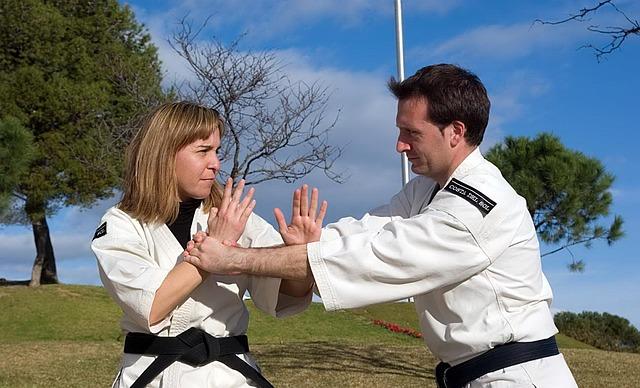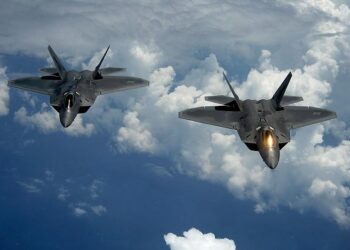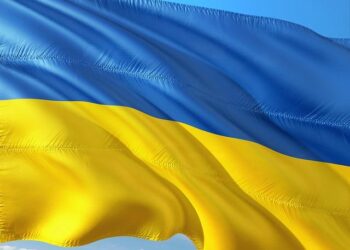Introduction
In the wake of geopolitical tensions and economic uncertainty, Europe finds itself at a crossroads, grappling with the challenge of navigating a world where its traditional allies may no longer offer the same level of support.The Center for European Policy Analysis (CEPA) underscores the urgency of this moment in their latest report, ‚ÄúDry Your Tears: Europe Must fight Alone.‚ÄĚ As the continent faces multifaceted threats ranging from security crises to economic instability,the report contends that Europe must cultivate a sense of strategic autonomy,shedding reliance on external powers and fostering a unified front.This article delves into the key findings of the CEPA report, exploring the implications for European governance, foreign policy, and the future of transatlantic relations. In an era defined by unpredictability, the message is clear: Europe must prepare to stand on its own, confronting challenges with resilience and innovation.
The Growing Need for European Autonomy in Crisis Management
In an increasingly unpredictable global landscape, the necessity for Europe to develop its own crisis management capabilities has never been more evident. Reliance on external powers for security and strategic decision-making has proven to be a double-edged sword, leaving European nations vulnerable to a range of crises that require immediate and unified responses. To mitigate this risk,Europe must prioritize the establishment of autonomous structures that can effectively address diverse challenges,ranging from geopolitical tensions to humanitarian disasters. key approaches to achieving this autonomy could include:
- Enhanced Defense Collaboration: Strengthening joint military exercises and operational capabilities among EU member states.
- Investment in Technology: Developing a European defense technology sector to reduce dependence on non-European suppliers.
- Establishment of Rapid Response Teams: Forming integrated units ready to deploy in times of crisis, ensuring a swift and cohesive response.
Furthermore, as Europe faces a multitude of crises that span the environmental, social, and economic spectra, a comprehensive approach to crisis management is essential. This includes not only military readiness but also a commitment to diplomatic engagement and lasting development as foundational pillars of European resilience. By prioritizing collaborative frameworks and cultivating the necessary political will among member states, Europe can steer its own course in crisis management. A clear framework for action may look something like this:
| Aspect | Current Status | Required Action |
|---|---|---|
| Military Coordination | Fragmented | Unified structures and joint operations |
| Technological Dependence | High on non-EU sources | Investment in domestic capabilities |
| Emergency Response | Slow and bureaucratic | Rapid deployment teams across member states |

Assessing the Current Landscape of European Security and Defense
The evolving security dynamics within Europe have prompted a critical reassessment of defense strategies among member states. Heightened geopolitical tensions, especially stemming from Russia’s aggressive posture, have underscored the necessity for a more cohesive and autonomous European defense apparatus. Key issues currently affecting the landscape include:
- Dependency on NATO: Acknowledging the need for robust military capabilities independent of U.S. support.
- Inter-state Collaboration: Enhancing joint defense initiatives among EU nations to bolster collective security.
- Resource Allocation: addressing budgetary constraints that hinder comprehensive military readiness.
- Technological Advances: Investing in next-generation defense technologies to stay ahead of evolving threats.
To illustrate the disparity in defense spending among European nations, the following table highlights key member states and their respective defense budgets for 2023:
| Country | Defense Budget (in billion ‚ā¨) | % of GDP |
|---|---|---|
| Germany | 53 | 1.4 |
| France | 52 | 1.9 |
| Italy | 24 | 1.4 |
| Spain | 13 | 1.2 |
This financial data prompts a pivotal question: how can europe maintain a unified and formidable defense strategy while balancing national interests? Strengthening existing frameworks and promoting strategic partnerships within the EU will be essential to mitigate threats and establish enduring peace on the continent.

The Imperative of Strengthening Intra-European Collaboration
As challenges loom on the horizon, the urgency of enhanced collaboration among European nations has never been more critical. In an era marked by geopolitical tensions and economic uncertainty, countries within the continent must forge robust partnerships that transcend borders. This collaborative effort can empower member states to tackle issues such as migration, trade imbalances, and security threats with a unified front. The growing complexity of global dynamics necessitates a basic shift in how Europe navigates its relationships internally.
To foster these collaborative ties, several strategic initiatives can be prioritized:
- Joint Defense Initiatives: Establishing shared military resources to counter escalating threats.
- Trade Agreements: Crafting cohesive trade policies that protect economic interests while promoting intra-European commerce.
- Climate Action Partnerships: Pooling resources and expertise to address climate change effectively.
- Cultural Exchange Programs: Encouraging understanding and unity among diverse populations throughout Europe.
These initiatives not only promise economic stability and security but also foster a sense of belonging among the European populace. As nations work collectively towards common goals, they can inspire confidence in the idea of a resilient Europe that stands strong against external pressures.

Strategies for Building a Self-Sufficient European defense Framework
To establish a robust and self-sufficient European defense framework,strategic realignment and investment in indigenous military capabilities are essential. Member states should prioritize the following key action points:
- Enhancing Defense Budgets: Encourage nations to allocate a minimum of 2% of GDP for defense spending, focusing on modernization and procurement of critical technologies.
- Strengthening Military Cooperation: Develop joint defense initiatives and collaborative procurement processes to maximize resource efficiency and interoperability.
- Investing in Research and Development: Fund innovative projects in advanced technologies such as artificial intelligence and cybersecurity to maintain a competitive edge.
In addition to the above measures, fostering a cohesive strategic culture across the continent will be paramount. European nations must ensure effective data sharing and joint operational planning thru:
| Strategy | Importance |
|---|---|
| Unified Command Structures | Improve coordination and reduce response times in crises |
| Joint Training Exercises | Enhance tactical proficiency and interoperability among forces |
| Defense Industry Collaboration | Strengthen the industrial base and reduce dependency on external suppliers |
Through these initiatives, Europe can create a self-sustaining defense posture capable of responding independently to emerging threats, ensuring long-term stability and security on the continent.

Investing in Innovation: enhancing Europes Technological Edge
The urgency for Europe to bolster its technological innovation has never been more critical, especially as global competition escalates. Emphasizing a strategic approach to investment can bridge the gap between aspiration and reality. Policymakers must prioritize funding in key sectors, understanding that innovation is a collective endeavor that can considerably enhance Europe’s competitive edge. Essential areas for investment include:
- Artificial Intelligence: Developing robust regulatory frameworks while fostering creativity.
- Green Technology: Supporting sustainable practices to combat climate change.
- Cybersecurity: Safeguarding digital infrastructure against rising threats.
- Biotechnology: Accelerating drug development and healthcare advancements.
Moreover, collaboration between governments, research institutions, and private enterprises is vital. By aligning interests and resources, Europe can harness a multi-faceted approach that drives innovation. Creating dedicated funds for startups and established companies alike can facilitate a smoother transition from R&D to market-ready solutions. Consider the following investment allocation table:
| Sector | Proposed Investment (% of Total) | Focus Area |
|---|---|---|
| AI | 30% | Machine Learning, Robotics |
| Green Tech | 25% | Renewable Energy, Waste Management |
| Cybersecurity | 20% | Data Protection, Network Security |
| Biotech | 25% | Healthcare Innovations, Pharmaceuticals |

Fostering a Unified Voice: The Role of European Institutions in Global Diplomacy
In an era where geopolitical landscapes are rapidly shifting, European institutions must assume a proactive stance in global diplomacy, transcending traditional state-centric approaches. The European Union, through its comprehensive policies and shared values, has the potential to galvanize member states into a powerful collective voice on the global stage.By fostering unity, the EU can actively engage in pivotal discussions around climate change, international security, and trade relations. With the backing of institutions like the European Parliament and the European Commission, a synchronized European response can affirm its commitment to multilateralism and the rule-based international order.
Key strategies for amplifying Europe’s diplomatic presence include:
- Enhanced Collaboration: strengthening partnerships with international organizations and global powers to address shared challenges.
- Strategic Communication: Crafting clear narratives that reflect the EU’s objectives and resonate with global audiences.
- Resource Allocation: Investing in diplomatic initiatives that prioritize humanitarian efforts and conflict resolution.
| Strategy | Expected Outcome |
|---|---|
| Enhanced Collaboration | Stronger alliances and shared resolutions on global issues |
| strategic Communication | Increased influence and engagement with global citizens |
| Resource Allocation | Improved humanitarian impact and peacekeeping efforts |
Ultimately, the reliance on a unified diplomatic front allows European institutions to not only advocate for their interests but also to promote a coherent narrative that champions democracy, human rights, and the rule of law. as the world grapples with complex conflicts and emerging threats, the cohesive actions of Europe can serve as a stabilizing force, ensuring that its voice resonates loudly amid the cacophony of global affairs.

The Conclusion
the challenges facing Europe today demand an urgent reassessment of its geopolitical strategies and defense capabilities. As highlighted in the analysis presented by the Center for European Policy Analysis, the path forward is fraught with complexities, yet it underscores the necessity for european nations to adopt a more self-reliant approach in safeguarding their interests. The era of relying heavily on external allies for security is waning,and European leaders must now rise to the occasion. By fostering unity, investing in robust defense systems, and prioritizing strategic autonomy, Europe can not only navigate current crises but also emerge as a formidable actor on the global stage. As discussions around policy reform and military readiness gain momentum, the time for action is now‚ÄĒEurope must dry its tears and face the future with resilience and determination.
















